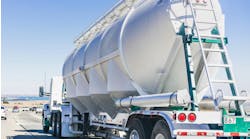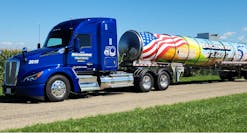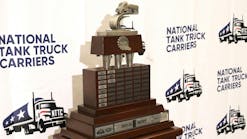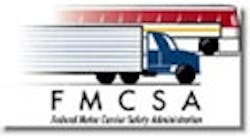The Federal Motor Carrier Safety Administration (FMCSA) has issued a final rule that addresses new carrier safety requirements and makes a carrier's failure to comply with any one of the 16 regulations an automatic failure of the safety audit, according to information published in the Federal Register December 16.
FMCSA identifies 16 regulations in the rule (49 CFR Parts 365, 385, 387, and 390) that are essential elements of basic safety management controls necessary to operate. If certain violations are discovered during a roadside inspection, the new entrant will be subject to expedited actions to correct those deficiencies.
Committing any one of the 16 violations will result in automatic failure of the safety audit. The violations include:
- Failing to implement an alcohol and/or controlled substances testing program.
- Using a driver known to have an alcohol content of 0.04 or greater to perform a safety-sensitive function.
- Using a driver who has refused to submit to an alcohol or controlled substances test required under part 382.
- Using a driver known to have tested positive for a controlled substance.
- Failing to implement a random controlled substances and/or alcohol testing program.
- Knowingly using a driver who does not possess a valid commercial driver license (CDL).
- Knowingly allowing, requiring, permitting, or authorizing an employee with a CDL which is suspended, revoked, or canceled by a state or who is disqualified to operate a commercial motor vehicle.
- Knowingly allowing, requiring, permitting, or authorizing driver to drive who is disqualified to drive a commercial motor vehicle.
- Operating a motor vehicle without having in effect the required minimum levels of financial responsibility coverage.
- Operating a passenger-carrying vehicle without having in effect the required minimum levels of financial responsibility.
- Knowingly using a disqualified driver.
- Failing to require a driver to make a record of duty status.
- Requiring or permitting the operation of a commercial motor vehicle declared out-of-service before repairs are made.
- Failing to correct out-of-service defects listed by driver in a driver vehicle inspection report before the vehicle is operated again.
- Using a commercial motor vehicle not periodically inspected.
FMCSA also will check compliance with the Americans with Disabilities Act and certain household goods-related requirements in the new entrant safety audit, if they apply to the new entrant's operation.
Failure to comply with either of these requirements will not affect the outcome of the safety audit. However, the agency will take appropriate actions to improve compliance.
In addition, FMCSA clarifies changes to some of the existing new entrant regulations and establishes a separate new entrant application procedure and safety oversight program for non-North America-domiciled motor carriers.
FMCSA has enhanced the quality and availability of its educational and technical assistance (ETA) materials to ensure applicants are knowledgeable about applicable federal motor carrier safety standards. Because the agency believes Form MCS-150A--Safety Certification for Application for USDOT Number is not an effective instrument for establishing knowledgeability, it is eliminating that form.
These changes do not impose additional regulatory requirements on any new entrant carrier because these carriers are already required to comply with all applicable rules. The rule becomes effective February 17, 2009.
The final rule can be accessed in the online Federal Register.









